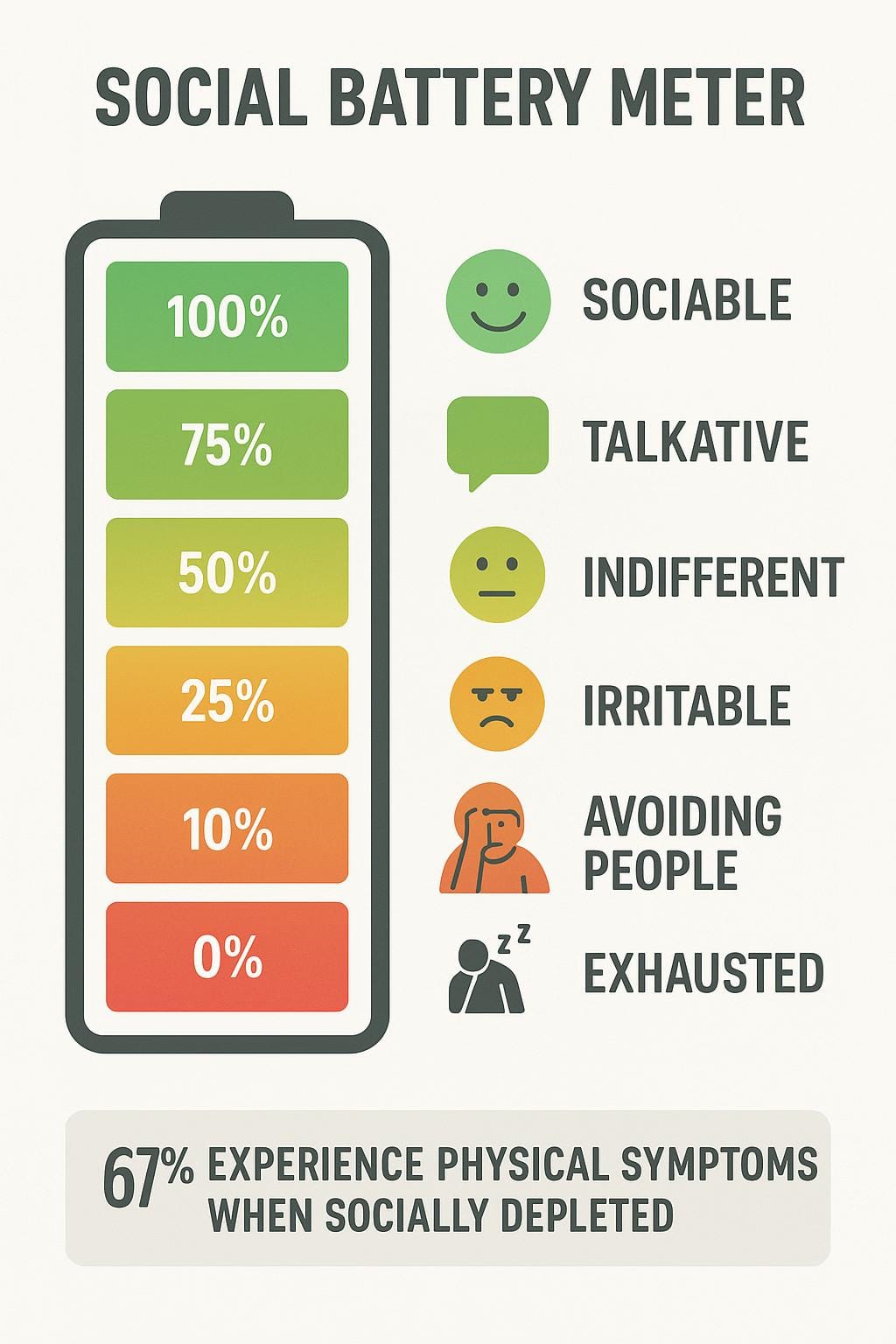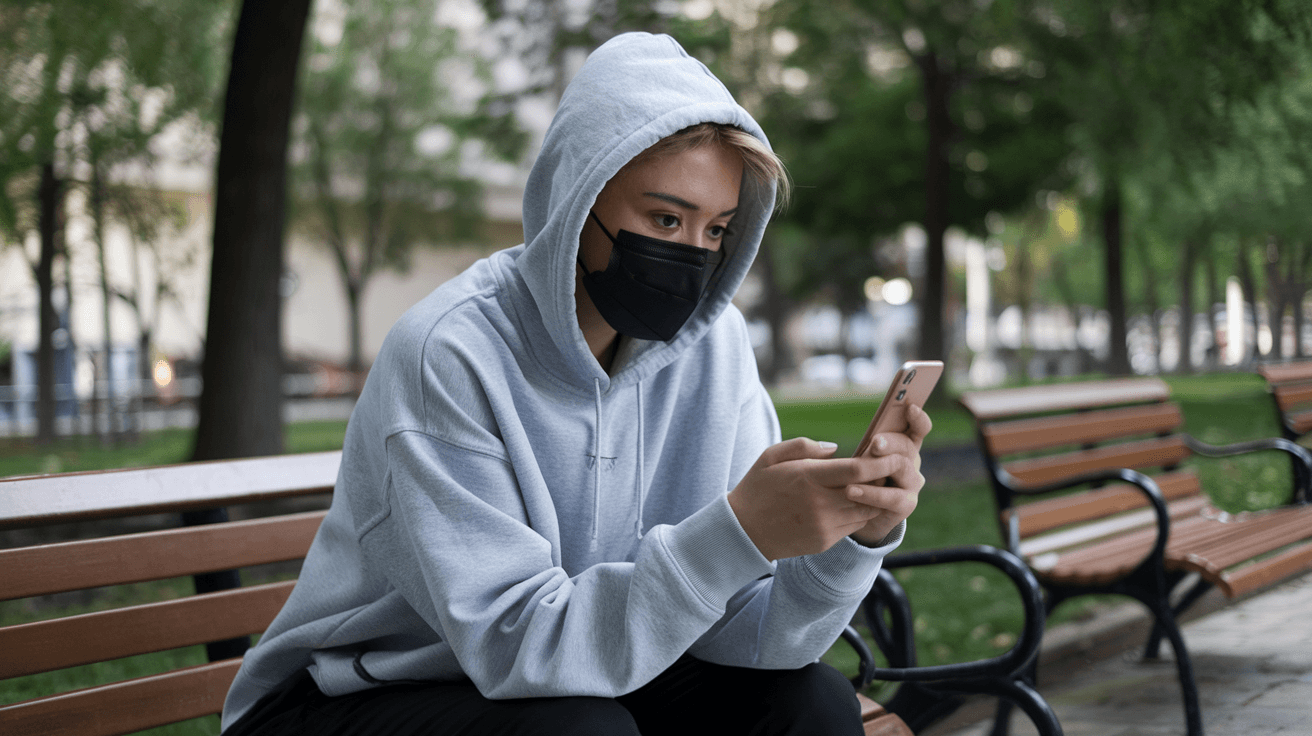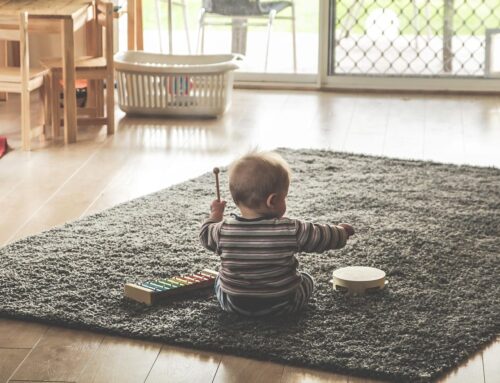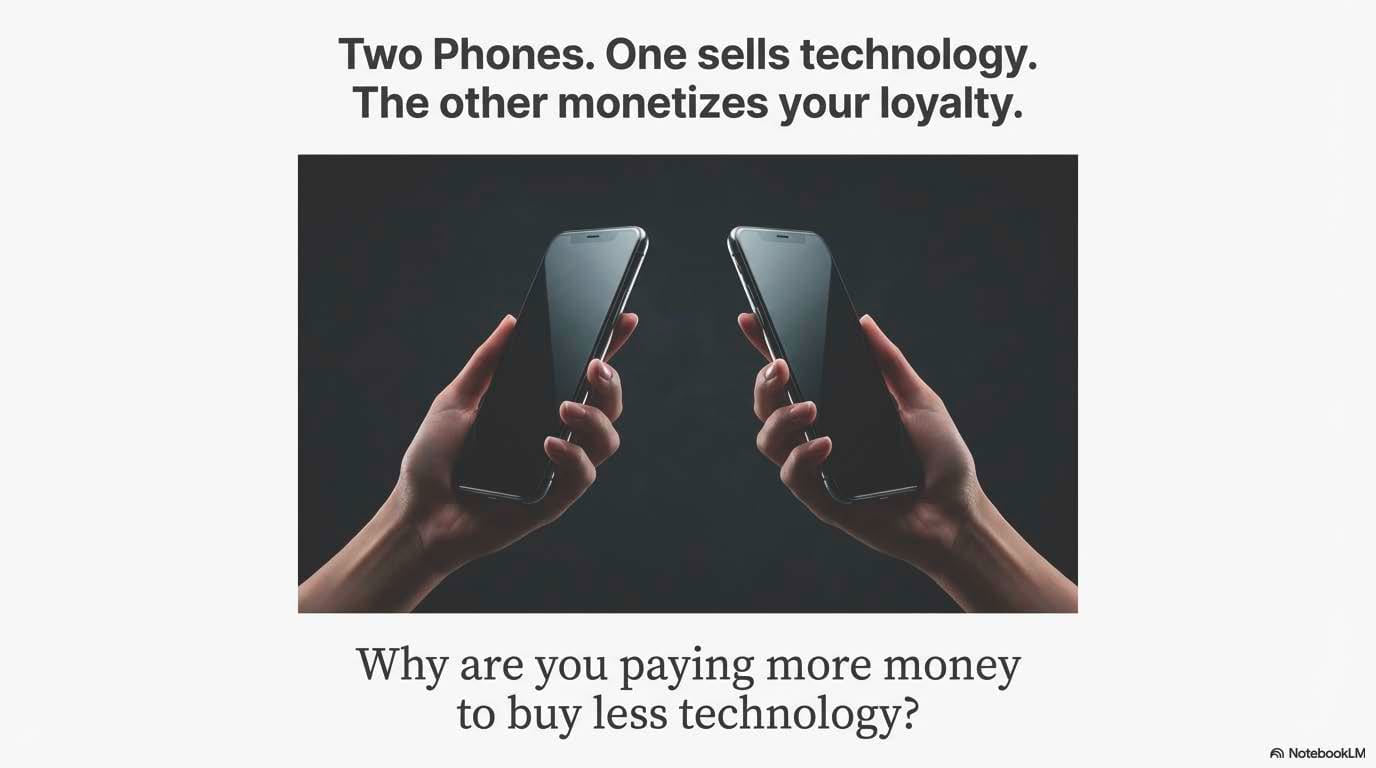The back-to-school season brings a perfect storm of social demands that can rapidly drain your mental energy reserves. For the estimated 30-50% of people who identify as introverted or socially sensitive, navigating this high-intensity period requires strategic energy management to prevent complete social battery depletion.
Key Takeaways
- Your social battery is a real psychological concept representing your finite capacity for social interaction
- The pandemic has caused a 49% increase in discomfort with in-person interactions, making back to school anxiety more common
- Physical symptoms like fatigue and headaches often signal social battery depletion
- Creating 15-30 minute transition buffers between social activities helps prevent complete depletion
- Setting boundaries through prepared scripts reduces guilt and prevents resentment
Understanding Your Social Battery
The term “social battery” perfectly captures how our capacity for social interaction operates like a rechargeable power source. Psychological research shows that social interactions require significant cognitive resources, with studies by experts like Dr. Sophia Dembling documenting the measurable energy cost of socializing.
Introversion and extroversion exist on a spectrum, with approximately 20-40% of the population leaning toward introversion. Your position on this spectrum largely determines how quickly your social battery depletes and how you recharge it — introverts typically recharge through solitude while extroverts often energize through connection.
The COVID-19 pandemic has dramatically altered our collective social stamina. Harvard Medical School researchers found that prolonged isolation created a form of “social muscle atrophy,” making previously routine interactions require more energy than before.
Back-to-School Season: The Perfect Storm for Social Depletion
The back-to-school period creates an intense concentration of social demands unlike any other time of year. Studies from the University of Minnesota reveal that parents experience a 65% increase in required social interactions during September compared to summer months — from teacher meetings to parent socials to orientation events.
Digital communication compounds this challenge with parents receiving an average of 30+ school-related notifications weekly. Each notification creates a micro-social obligation that incrementally drains mental resources, contributing to the 78% of parents who report feeling overwhelmed during the first month of school.
For students, the social pressure often outweighs academic concerns. Research published in the Journal of School Psychology indicates that social worries outrank academic anxieties by a margin of 2:1 during the transition back to school, making student mental health particularly vulnerable during this period.
Recognizing Your Social Battery Warning Signs
Your body sends clear signals when social depletion occurs, with 67% of people experiencing physical symptoms. These warning signs include unusual fatigue, tension headaches, and digestive disruptions that indicate your system is overwhelmed.
Emotional indicators often appear before physical symptoms, including:
- Increased irritability with minor social friction
- Anxiety about upcoming social events
- Guilt about wanting alone time
- Feeling overwhelmed by simple conversations
Cognitive function also suffers during social depletion. A Yale University study found participants performed 30% worse on cognitive tasks after three hours of unplanned social interaction, explaining the mental fog and decision fatigue that often accompanies social exhaustion.
Recharging Strategies for the Socially Depleted
Creating transition buffers between activities provides essential recovery time for your nervous system. Even 15-30 minute decompression periods allow your parasympathetic system to activate, reducing stress hormones and preventing complete social battery depletion.
Strategic scheduling preserves social energy by limiting high-demand interactions. Try restricting high-energy social commitments to 1-2 per week, leaving space for recovery and genuine connection rather than depletion-inducing small talk.
Establishing energy-preserving routines creates predictability that reduces cognitive load. Morning preparation, simplified meal planning, and designated quiet spaces all contribute to maintaining social reserves during busy periods.
The art of saying “no” preserves your capacity for meaningful connection. Consider these boundary-setting approaches:
- Prepare specific scripts for declining invitations
- Suggest alternative, lower-energy ways to connect
- Schedule social activities during your peak energy times
- Set clear expectations about your availability
Digital management significantly impacts social energy restoration. Studies show that checking emails and messages at designated times rather than responding to each notification reduces anxiety by approximately 55%, making it an essential self care for students and parents alike.
Creating a Sustainable Social Calendar
The key to managing friendships during back-to-school season is quality over quantity. Research from social psychology indicates that maintaining 3-5 close relationships provides greater satisfaction than numerous superficial connections that drain your social battery.
For those coping with social anxiety, preparation reduces uncertainty and preserves energy. Taking time to visualize social scenarios, prepare conversation topics, and plan exit strategies allows for more confident and less depleting interactions.
Remember that effective social battery management isn’t about avoiding people but creating sustainable patterns of engagement. By honoring your social energy limits, you create space for more authentic connections while protecting your mental wellbeing throughout the challenging back-to-school transition.
Sources
American Psychological Association – COVID-19 Continues to Take Toll on Social Interactions
Harvard Medical School – Post-Pandemic Social Readjustment: Understanding Social Muscle Atrophy
National Parent Teacher Association – Back-to-School Stress Survey
Journal of School Psychology – Student Concerns During School Transitions
University of Minnesota – Parental Social Demands During Academic Year Transitions
Digital Wellness Institute – Notification Burden on Parents of School-Aged Children
American Institute of Stress – Physiological Responses to Social Overextension
Journal of Health Psychology – Physical Manifestations of Social Exhaustion
Yale University – Cognitive Performance Following Prolonged Social Interaction












